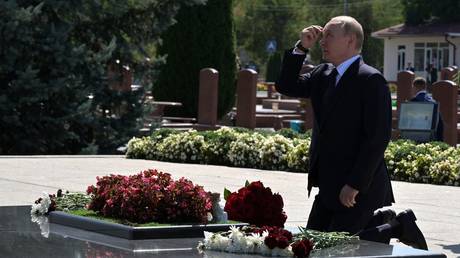‘Grad School By Gaslight’
A friend’s academic memoir

There’s no better way to understand what’s happened to academia than from the takes of an insider turned apostate and informant. I became both. So did my friend, John Tangney, whose book I discuss below.
As for me, at the tail end of my imbroglio with the social justice (since termed “woke”) mob at NYU, I wrote a memoir about my academic career that began briefly in childhood, continued through my undergraduate and graduate school studies, and ended with my career as a professor—first at Carnegie Mellon University, then North Carolina Central University (NCCU), then Duke University, and finally at NYU.
Entitled Springtime for Snowflakes: ‘Social Justice’ and Its Postmodern Parentage, this romp through academia included several recondite and fairly dense chapters that “unpack,” as English Studies academics are wont to say, the theoretical ideas that underpin much of the activism that has not only engulfed the curriculum but since became the very substance of our mainstream culture, at least for the NPCs.
Springtime for Snowflakes subsequently did well in the market, at one point even reaching #78 out of all books on Amazon.
This was due, in no small part, to the book’s provocative title, some good reviews, and the publicity the book received, including a full screen billboard broadcast on Fox News at the end of a Fox & Friends segment. As it is, I am no longer invited onto such shows.

But this stack is not primarily about this book of mine. Rather, I want to tell you about another academic memoir, one that hasn’t yet received the attention it deserves.
During my time in Durham, NC, where I taught at NCCU and Duke, I became fast friends with John Tangney, then a Ph.D. student in English at Duke, whom I instantly recognized as a fellow traveler. We met at some university function during which he voiced some concerns about campus politics. John’s academic memoir, entitled Grad School by Gaslight, is a brilliant and gripping exploration of this terrain.
The book tells the tale of an Irishman’s excursion into American academia and culture. Likewise, it represents a case of culture shock and an attempt at what anthropologists once called “going native.” For anthropologists, going native once referred to studying a culture by attempting to adopt the local customs and habits, etc. Incidentally, I learned that the phrase “going native,” which had been used by anthropologists as recently as in Bruno Latour’s Laboratory Life: The Construction of Scientific Facts (1986), and which I suggested that my son use in anthropology paper, has since become ethnocentric and racist—representing yet another case of the progressive outlawing of otherwise innocuous referential language.
The memoir recounts the baffling cultural and intellectual environment into which John was thrust after he accepted a place in Duke’s English Ph.D. program. When he entered the program, John was not au currant in the theory that had taken over American English departments and the identity politics of American culture flummoxed him, seemingly to no end. All this was used against him—as if not knowing about or agreeing with contemporary identity politics made him Hitler.
John is mild mannered and somewhat taciturn, characteristics that magnetized many of the women among his peers. They took his demeanor as representing a kind of wounded-animal type that contrasted with the white alpha males they so despised. He apparently elicited their motherly instincts, somewhat against their own wills, since they declaimed motherhood as slavery. Nevertheless, they fell for him and he bedded a good number of these female grad students, at least one of whom turned out to be crazy. She’s given the pseudonym “Florence” in the memoir. I knew her well and can validate John’s assessment.
After they had sex one time, Florence assumed that she and he had become a couple and immediately tried to move some of her possessions into his apartment. When he demurred, she began what can only be considered a terror campaign that eventually included, after three years of her stalking and hounding him, accusations that he’d raped her in that one and only sexual encounter three years before.
John’s travails “intersected” with the now nearly forgotten “Duke lacrosse rape case,” which also turned out to be a complete sham. The campus culture was charged with hatred of “privileged white males,” who were all taken for rapists, just as John was subjected to accusations that he’d raped this disturbed young woman. John was treated to the vitriol of these “potbangers,” who jumped on the denunciation bandwagon and convicted the lacrosse players in the court of Duke public opinion. John’s hesitance to go along was taken as evidence of his own guilt.
John details the external environment eloquently but more dramatic are his reconstructions of his own mental landscape as he comes to second-guess himself and naturally becomes paranoid of almost everyone around him. I play a role in this memoir, given the pseudonym “Mike Reynolds.” I consider it an honor that I’m the only person from this period in John’s life that he remains in contact with.
In the course of Grad School by Gaslight, the reader becomes privy to John’s innermost thoughts and feelings, the kind of “interiority” that was simultaneously being deconstructed in the English department. The reader also learns a good deal about philosophy. Like me, John found an oasis in his own research, which for him hinged on the Aristotelian concept of substance, an essential underpinning of reality that was also under attack in his (and my) intellectual circles. For me, the hideout was in the history of science, a field that the savages of postmodern theory hadn’t yet entirely infiltrated.
John assures me that you can get the ebook on Amazon for free for a limited time (during the next five days). I read it over a couple nights before bed. I highly recommend it. Hopefully you won’t have any nightmares, at least ones as bad as the nightmare that John Tangney endured.




